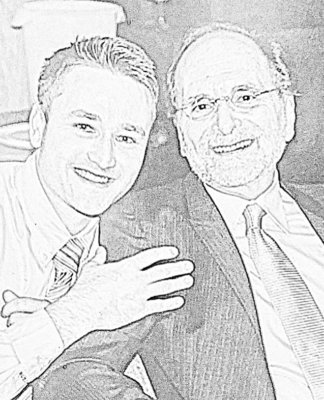Happiness has everything to do with your emotional life, including your emotional memories, but perhaps not in the way you imagine. Happiness, according to the dictionary definition, is “a state of well-being and contentment” or “a pleasurable or satisfying experience.” 1 Yet, from a psychological point of view, a state of happiness arises from the complex interaction among your biology, biography (history and culture), and physiological sensations. The experience of positive emotions, such as elation, gladness, relief, bliss, or amusement is “scripted” early in life by the circumstances around which such emotions have been felt. If your family, culture, or environment discouraged the expression of intensely felt positive emotion, for example, you may fear judgment or some other obstacle when you are excited. Regardless of how the circumstances of your past might impact your interpretation of an emotion in the present, its actual source is biological and remains constant. Our emotional responses originate in our brain. They serve to direct your attention and motivate your behavior by creating various responses. The emotion that follows includes images and thoughts you attribute to what you feel in your body.
So, then, how do you become happy or get happier? Among nine core emotions, only two are involved in creating the emotions and sensations that lead to an experience of happiness. They include, on a mild-to- intense-spectrum, enjoyment-joy and interest-excitement. 2
You may recognize a smile or laughter as the expression of enjoyment-joy. The smile of joy may be relief, as well as the sudden reduction of pleasure that is found in an orgasm or following a good meal. 3 Yet the enjoyment produced by the conscious experience of a smile may also be the result of retrieved unconscious memories of your own past smiles. 4 Similarly, simply remembering, anticipating, or imagining may evoke the smile of joy, and that this capacity in humans serve a social significance as it ties us to others. 5 Thus, we might infer that happiness, based on the experience of enjoyment-joy, is more than just good feeling; it is a foundation upon which human connection is based.
The emotion of interest-excitement can also create an aura of happiness, as well as connect humans, since it is often activated or accompanied by pleasurable looking or listening, and by sexuality. 6 Excitement is a crucial emotion since it attracts and holds a person to a particular wayof life; that is, we are what excites us. 7 Without the activation of excitement, whether it is from thinking, doing, imagining, or interacting, we can feel tired and lifeless.
Excitement, combined with other emotions, such as fear or shame, produces a potent combination. A frightening amusement park ride is concurrently exciting. And many people link shame or humiliation to excitement in their sexual encounters. In any case, the resulting positively elevated feelings can be interpreted as happiness.
Some theorists have speculated that interest motivates novelty-seeking and exploration, in contrast to enjoyment which motivates attachment to familiar events, such as having a favorite restaurant or vacation destination. 8 Although trying something new may end up in disappointment, novelty-seeking builds knowledge and skills, and it certainly can provide you with the experience of happiness.
Interest is an emotion associated with curiosity, exploration, and information seeking. 9 Interest can make you happy. In an interview with Charlie Rose, Margaret Atwood noted that, “happiness is a byproduct of being interested in what you do.” 10 The emotion of interest– both being interested and interesting—also can profoundly affect one's physiological and psychological well-being. According to a study, a sense of purpose, meaning, and engagement with life, referred to as eudaimonic well-being, predicts physical health (including lower levels of the stress hormone cortisol), and is protective against psychopathology. 11
Given that positive emotions can provide the resources for happiness, the trick you must use to create it is to welcome those emotions when they are activated. But you must remember that the feelings associated with the activation of any emotion are short-lived since emotion is triggered in response to something specific. We do not experience enjoyment, joy, interest, or excitement all of the time, any more than we continuously experience any of the negative emotions. Both positive and negative emotions are part of humanness, and the positive emotions we experience that create happiness are differently important than the negative ones from which we can learn. But certainly, the positive ones do feel better.
(For information about my books, please see my website: www.marylamia.com)
Endnotes
1 Merriam-Webster, 2016.
2 Tomkins, S. S. (1962/1991), Affect Imagery Consciousness: The Positive Affects (Vol. 1), New York: Springer.
3 Tomkins, S.S. (1962/1991), cited above.
4 Tomkins, S.S. (1962/1991), cited above.
5 Tomkins, S.S. (1962/1991), cited above.
6 Tomkins, S.S. (1962/1991), cited above.
7 Tomkins, S.S. (1962/1991), cited above.
8 Tomkins, S.S. (1962/1991), cited above.
9 Fredrickson, B. L. (1998). What good are positive emotions? Review of General Psychology, 2,
300-319; Izard, C. E., & Ackerman, B. P. (2000). Motivational, organizational, and regulatory functions of discrete emotions. In M. Lewis & J. M. Haviland-Jones (Eds.), Handbook of Emotions (2nd ed., (pp. 253-264). New York: Guilford Press.
10 Rose, C., Season: 22, October 2013.
11 Heller, A.S.; van Reekum, C.M.; Schaefer, S.M.; Lapate, R.C.; Radler, B.T.; Ryff, C.D; & Davidson, R.J. (2013). Sustained Striatal Activity Predicts Eudaimonic Well-Being and Cortisol Output. Psychological Science, 23.


 As clinical psychologist and psychoanalyst I work with adults, adolescents, and preteens in my Kentfield, California private practice. I am also a professor at the Wright Institute in Berkeley, California. Teaching the public about the psychology of human behavior has been something I've done for over 35 years. For nearly a decade I hosted a weekly call-in talk show, KidTalk with Dr. Mary, on Radio Disney stations, and have provided opinions in many media interviews and discussions.
My books include:
As clinical psychologist and psychoanalyst I work with adults, adolescents, and preteens in my Kentfield, California private practice. I am also a professor at the Wright Institute in Berkeley, California. Teaching the public about the psychology of human behavior has been something I've done for over 35 years. For nearly a decade I hosted a weekly call-in talk show, KidTalk with Dr. Mary, on Radio Disney stations, and have provided opinions in many media interviews and discussions.
My books include: 



















